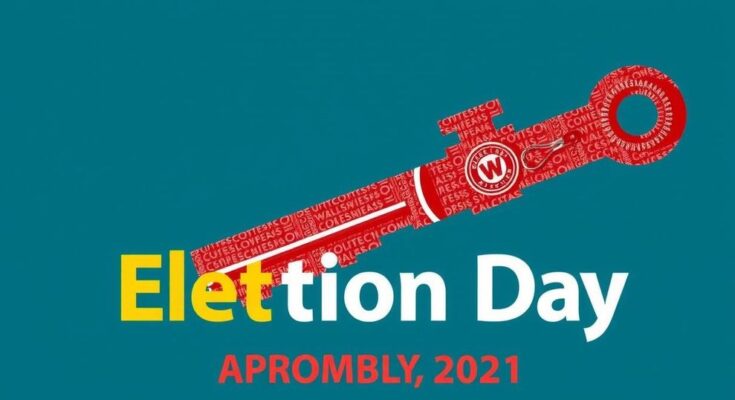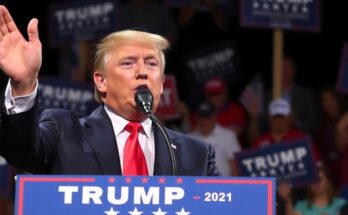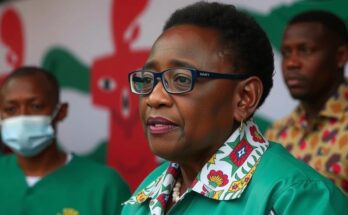As Election Day approaches, Washington voters are largely fixated on the presidential race between Kamala Harris and Donald Trump, overshadowing critical local contests and initiatives, leading to heightened anxiety and strategic adaptations among local candidates. Voter concerns range from crime and reproductive rights to the integrity of the electoral process, reflecting a complex interplay between local and national electoral dynamics. Early voting statistics suggest varying engagement levels, with an overall feeling of anxiety prevailing among the electorate.
In the lead-up to the upcoming election, voters in Washington State find themselves primarily focused on the presidential race between Vice President Kamala Harris and former President Donald Trump, overshadowing local contests and referenda. This election marks the first gubernatorial change in 12 years, alongside decisions for new attorney general, public lands commissioner, and congressional seats. Despite the significance of these races, interviews with a diverse group of voters illustrate a concerning preoccupation with the broader implications of the presidential election. Voters articulate feelings of anxiety and apprehension regarding a potential Trump victory, reflecting a deep-seated fear that transcends local concerns. Many express that the rhetoric associated with Trump is unsettling, with David Phillips, a public health researcher, remarking on the normalization of hostile language toward opposing voter blocs. Local candidates are adapting their campaigns to reflect the prevailing focus on the national race. For instance, Bob Ferguson, the Democratic candidate for governor, is leveraging the association with Trump as part of his messaging against his Republican opponent. In traditionally Republican areas like the Southwest Washington’s 3rd Congressional District, candidates are caught in the tension between national trends and local voter concerns. For example, Rep. Marie Gluesenkamp Perez is navigating her campaign without revealing her presidential vote to moderate constituents. Voter sentiments encompass a spectrum of issues ranging from reproductive rights to crime rates, with some expressing disillusionment with local policies and others supporting candidates as a means of mitigating perceived national risks. Moreover, the electoral landscape is shaped by regional dynamics, as the Seattle area, generally seen as a Democratic stronghold, experiences a rising Democratic influence among suburban voters. However, the implications of the presidential race seep into discussions at the local level, as voters like Jodie Bosma express concerns about safety and governance under the current administration. As the election approaches, there exists a palpable tension among voters regarding the integrity of the electoral process, particularly in light of Trump’s past assertions about mail-in voting. The anxieties surrounding these claims have permeated local sentiments, leading to criticisms of established voting systems. In summary, while Washington voters have a range of local races to consider, the overwhelming focus lies with the presidential election, reflecting broader national anxieties and shaping local campaign strategies, ultimately leading to a complex interplay of local and national electoral dynamics. Amidst these heightened sentiments, voter turnout statistics indicate varying levels of engagement, with early reports showing decreased participation compared to the previous election cycle. The culmination of voter emotions is marked by a noteworthy sense of anxiety, reinforcing the interconnectedness of local and national elections in this unique political climate.
The upcoming election in Washington State stands out as pivotal, marking the opportunity for voters to elect a new governor, attorney general, and potentially new congressional representatives. Despite a comprehensive local ballot that includes key initiatives on taxes and climate policy, the overriding focus among voters centers on the presidential race between Vice President Kamala Harris and former President Donald Trump. This reflects a broader trend of national politics overshadowing local issues, as voters navigate their anxieties concerning leadership and policy directions.
In conclusion, Washington State voters are experiencing heightened focus and anxiety as they approach a significant election marked by the presidential race that eclipses local contests. Concerns about leadership and implications of national policy resonate deeply within the electorate, manifesting in voter apprehension and engagement patterns. While the local elections hold immense importance, they remain subservient to the overwhelming force of national political dynamics, shaping the electoral landscape and influencing local candidates’ strategies.
Original Source: www.seattletimes.com




